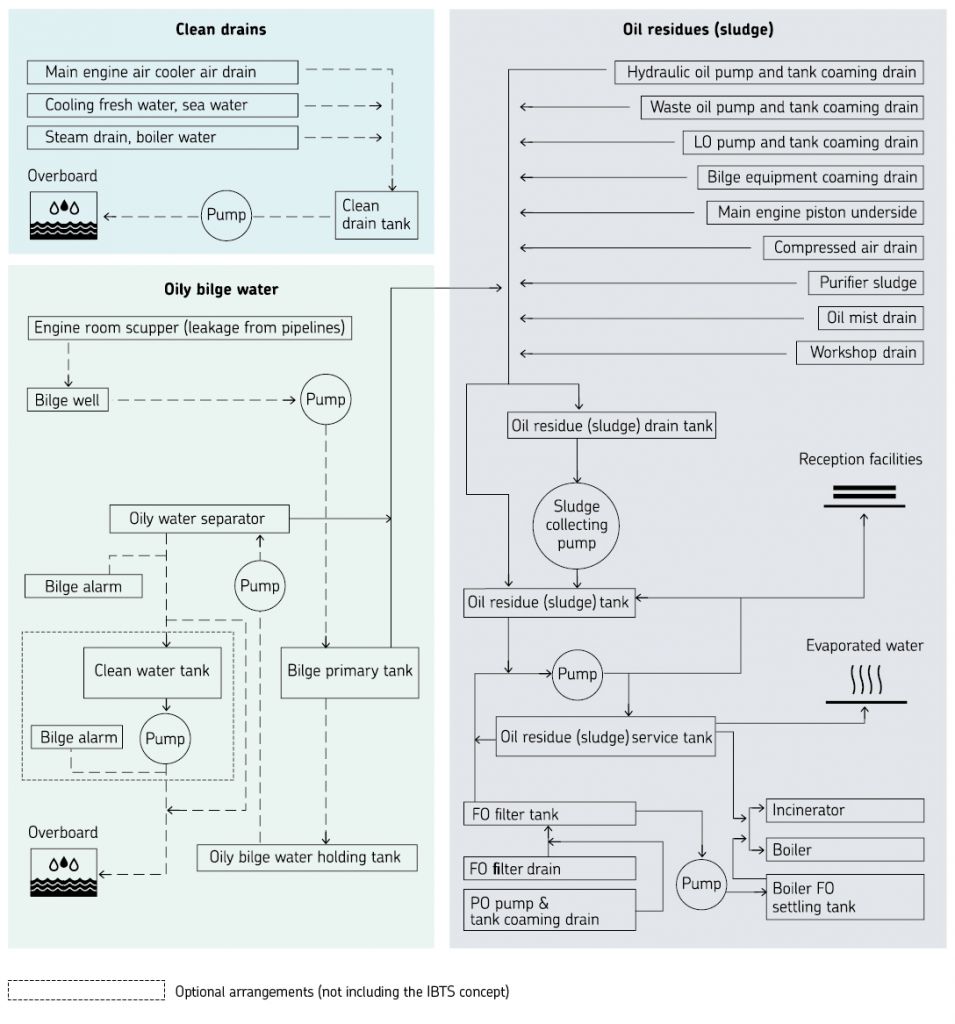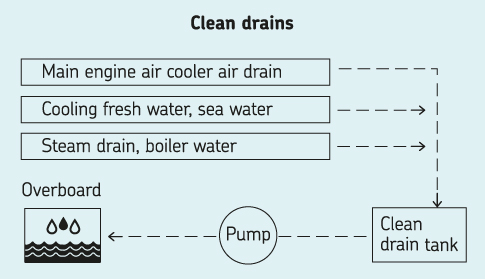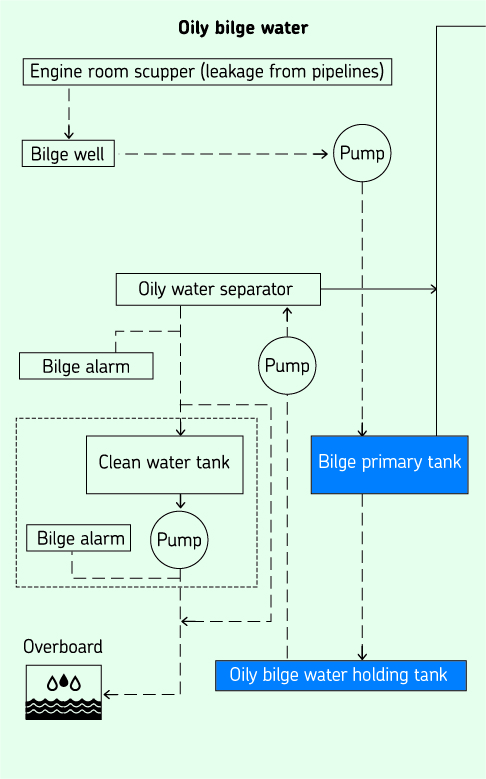Ships produce a mixture of oil, water, and other substances on a daily basis. This mixture is known as bilge water, as it accumulates in the bilge wells at the bottom of the engine room. To prevent pollution, oil and water need to be separated before the water can be discharged overboard. For this reason, oily water separators have become standard equipment on all kinds of vessels. While the IMO’s MARPOL convention forbids the direct discharge of oil or oily water into the sea, there are various approaches that shipowners can take.
An integrated approach to separation
A popular method to minimize the amount of oily bilge water in machinery spaces is by using an integrated bilge water treatment system (IBTS) [see fig. 1]. This concept was developed around 2004 and recognized by the IMO in its revised MEPC.1/Circ.642 guidelines in 2008. But while it is not a particularly new approach, and despite the fact that it is not mandatory, the IBTS concept is currently experiencing an upsurge in popularity.
In essence, an IBTS treats leaked substances, such as oil, water, and sludge, separately. This means that fluids and materials are kept separate at their source, instead of being mixed together in a tank, which makes them much easier to store and treat. For example, clean drain water, i.e., water that has not been contaminated with oil, is simply collected in a separate tank and pumped directly overboard [see fig. 2]. This reduces the amount of oily bilge water to be separated.
A mechanical tank skimmer, such as the Sludge Buoy system, can be used to pre-separate oil from water in the bilge tanks [see fig. 3]. An additional advantage of this approach is that the separated oil is free of water. This means the collected oil residue can be either incinerated or sold as sludge oil for further use on land.
Cost-cutting and clean
More and more shipowners and shipyards are incorporating the IBTS concept on vessels to make it easier to comply with pollution prevention guidelines and reduce their environmental impact. But an IBTS can also help reduce operating costs. For example, by enhancing an IBTS with a filtration system located upstream of the oily water separator, it is possible to extend the lifetime of the separation elements. Filtration systems like the Turbulo SolidMaster remove suspended solids in bilge water to prevent the formation of emulsions and facilitate MARPOL compliance.
Additionally, shipowners can install monitoring systems to complement their IBTS and facilitate compliance checks during Port State Control or Coast Guard inspections. Systems such as Turbulo HycaLogger or SKF BlueMon can be deployed to monitor oil content before overboard discharge and record all emissions in case of disputes.
At present, the use of an IBTS is still voluntary. However, many shipowners and shipyards have recognized the benefits of following the IMO’s recommendations and are reaping the rewards of cleaner, more cost-efficient operations.



